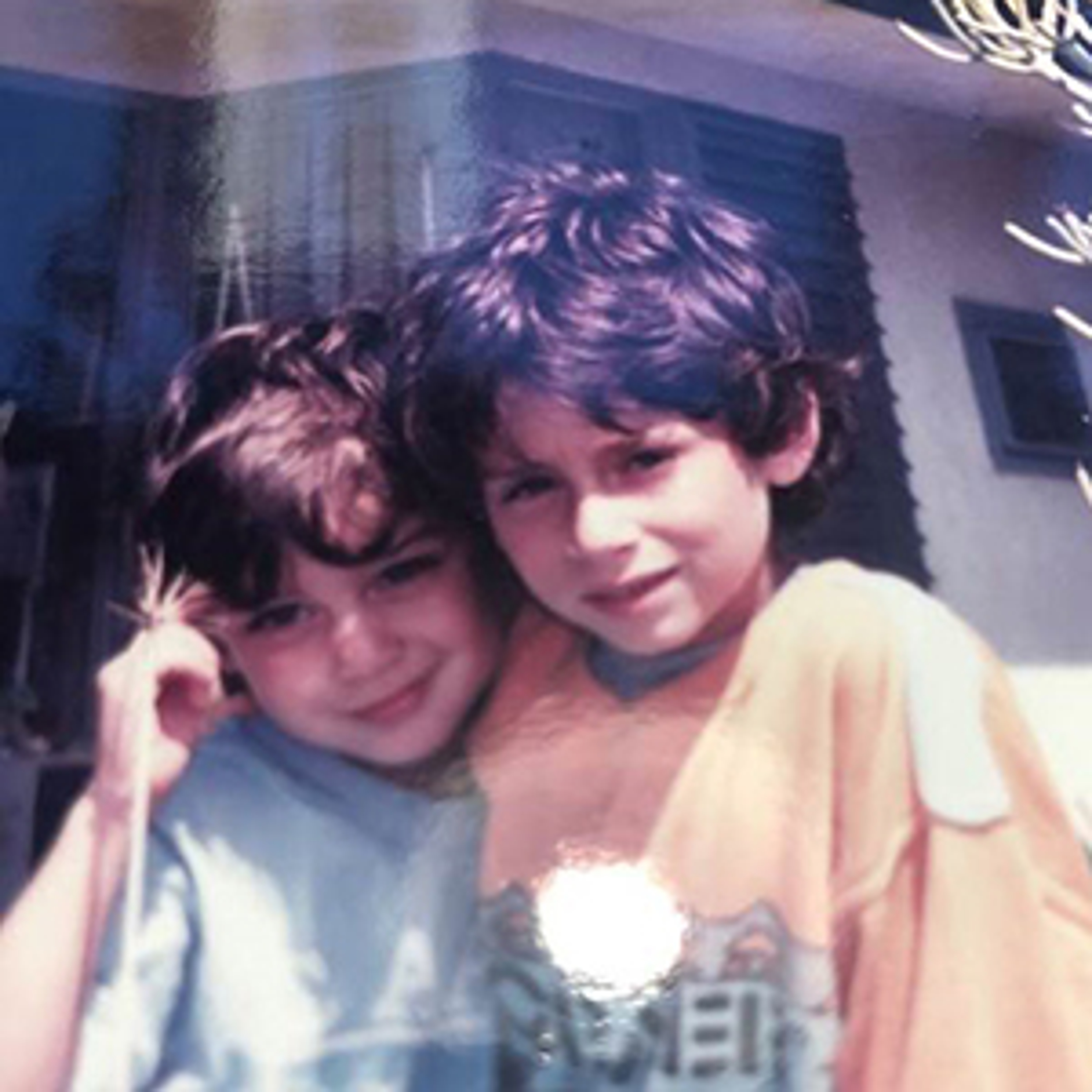How Fatherhood Changes the Brain
New fathers, like new moms, go through hormonal and psychological changes that help them become better parents.
May 31, 2022
When my wife and I became engaged, children were part of the plan. It was actually her plan, and though I hadn't thought much about raising kids, I loved her enough to go along with it.
After our I-dos, when she got pregnant, I wasn't sure what kind of father I would be, but after many months, Lamaze classes, and OB/GYN meetings, something must have clicked, because when our first son arrived, I was all in. When I wasn't at the office, I shared equally in feedings, diaper changes, playing, hugging, kissing, and baby talk. We took turns walking up and down the long hallway in our apartment much of the night to stop our son's crying and get him to sleep. Though exhausting, it all seemed natural, and I didn't analyze it.
But now, researchers worldwide are analyzing what goes on in a new father's mind during pregnancy and childhood, and their findings are mind-blowing — and another reason to celebrate dads

It's well-established that pregnant mothers have hormonal and cerebral changes during pregnancy and childhood that enhance their parenting skills, and it turns out that fathers, despite not actually carrying the baby, simultaneously go through comparable changes.
“We haven't given fathers much credit as primary caregivers, and we've rarely thought about them at all as expectant parents," says developmental neuroscientist Helena Rutherford, Ph.D., assistant professor at Yale University's Child Study Center. “We've acted as though once the baby arrives, they simply become fathers. But actually, the psychological, neurological, and hormonal changes that start to unfold in them during pregnancy are on a parallel path with the mothers."
A tale of testosterone
A key focus of the research is what happens to fathers' testosterone levels. In 2011, a landmark study led by Lee Gettler, Ph.D., at the University of Notre Dame, followed 624 non-fathers over time, finding that those with higher testosterone levels were most likely to become partnered fathers by the time of follow-up 4.5 years later; they then soon experienced large declines in their testosterone levels that were far greater than the declines in men who remained non-fathers. Furthermore, the fathers who reported three hours or more a day of childcare had far lower testosterone levels than those who weren't involved in childcare.
Gettler observed that testosterone appeared to be a “mediator" between mating and parenting, with high levels predicting mating success and declining levels predicting parenting success. Put another way, nature provides high testosterone to drive the hunt for a mate, but once a mate is found, lower levels reduce the mating drive so the now gentler, less driven father can focus on raising his family.

These substantial testosterone drops may be a modern phenomenon, since not long ago, so many offspring died in childbirth or early childhood that fathers wanted to keep producing progeny. Higher testosterone remained helpful. But, with child survival way up and with economics dictating against raising multiple children, most families aim for fewer kids.
“Testosterone levels may reflect these different reproductive strategies," says Darby Saxbe, Ph.D., associate professor of psychology at the University of Southern California. “Now, we might have only one or two or three children, but we invest in them tremendously. Rather than maximizing the number of offspring you produce, you want to maximize the survival of each offspring, so you're shifting away from a mating strategy toward a nurturing strategy." Ergo, lower testosterone.
In the past few years, scientists have shown that testosterone levels start to drop dramatically in fathers before the baby is born, especially in the last trimester. The closer the due date comes, it seems, the more nature is preparing men for child-rearing. David Zachary, a soon-to-be father, reflects this phenomenon perfectly. “My wife is in her seventh month, and I keep feeling more warmth and paternal communion with the baby," he says. “When you first talk to the baby, it's like talking to some fantasy future thing that will exist; the conversation is really just in your mind. But now, he keeps getting bigger and more fully formed on the ultrasound. He's viable. We have an app that tells the different stages of development, and I know that when I talk to my wife's belly now, I'm talking to a person who is actually hearing me. He's real to me now."
A warm bath in the brain
While testosterone has seen the lion's share of the research, it's not the only hormonal game in town. As testosterone goes down, other hormones like oxytocin and prolactin — the same ones that surge in new moms — also surge in dads. This research is newer, but it looks like the whole warm bath of the so-called maternal hormones may also be prepping dads for parenting.
Rutherford cites the work of Ruth Feldman, a developmental social neuroscientist who recently showed that, like mothers, fathers have increased levels of oxytocin, the attachment hormone, during pregnancy. The oxytocin levels keep increasing after the baby is born if the parents have tactile contact with it. As with mothers, the more fathers touch, play, and engage with their child, the more oxytocin they develop, cementing their bonds with the baby.

Similarly, Gettler's research showing that testosterone levels dropped in the perinatal period, also showed that levels of prolactin – the hormone that produces milk in mothers – rose in fathers in the same period. The rise started in pregnancy and soared higher after the baby was born and started interacting with the father. Other research has shown that dads who have the greatest response to infant cries also have the highest prolactin levels. It appears that while dads don't have the intimate privilege of breast-feeding, prolactin is an emotional hormone that makes them better, more responsive fathers.
Saxbe and her team are investigating whether the stress hormone cortisol rises in fathers as their testosterone decreases. A cortisol rise may be part of an alert system that helps parents stay attentive to anything amiss with their babies.
A 2014 study led by Feldman found that men go through similar changes to their brain as mothers in the perinatal period – the reduction of gray matter that distracts from childrearing, and an increase in gray matter that enhances childrearing.
“The interplay of all these systems appears to be important in fathers as well as mothers," says Rutherford.
Meeting of the minds
The fact that fathers, despite not bearing children themselves, go through all these hormonal changes that make them, in a sense, more like the mothers – less libidinous and more nurturing – appears to be nature's ingenious way of getting everybody on the same team, in the same mindset, to give maximum love and care to their child. Saxbe points to research showing that intimate partners tend to synchronize with one another.
“One thought is that when cohabitating with a pregnant partner, our patterning of hormones is being influenced by the partner," she says. “And that may be setting up men to be more biologically prepared for parenthood."
.svg?q=70&width=384&auto=webp)







